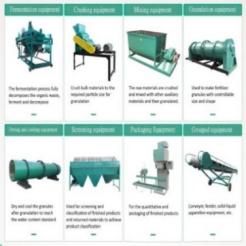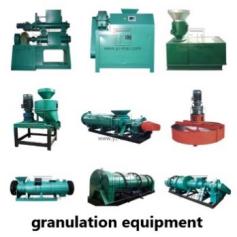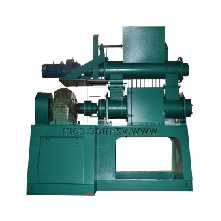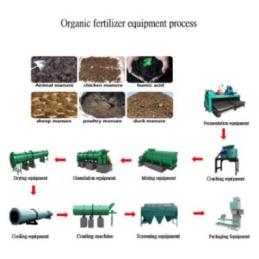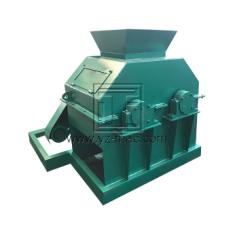Fertilizer pellet making machine
A fertilizer pellet making machine is an innovative piece of equipment designed to convert various organic materials and waste into nutrient-rich fertilizer pellets. With its efficient pelletization process, this machine helps transform organic waste into a valuable resource that can enhance soil fertility and promote sustainable agriculture.
Benefits of a Fertilizer Pellet Making Machine:
Resource Utilization: A fertilizer pellet making machine allows for the effective utilization of organic waste materials. By converting waste into pellets, it transforms what would otherwise be discarded into a valuable fertilizer resource, reducing environmental pollution and waste accumulation.
Nutrient-Rich Pellets: The fertilizer pellets produced by the machine are packed with essential nutrients, such as nitrogen, phosphorus, and potassium, along with other trace elements. These nutrients are crucial for plant growth and development, promoting healthier crops and improving overall agricultural productivity.
Controlled Nutrient Release: The pelletization process enables the controlled release of nutrients over time. This ensures that plants receive a consistent and balanced supply of nutrients, reducing the risk of nutrient leaching and maximizing their uptake by plants.
Ease of Application: Fertilizer pellets are easy to handle and apply, making the fertilization process more efficient and convenient. They can be accurately spread across the field using various equipment, ensuring uniform coverage and optimal nutrient distribution.
Working Principle of a Fertilizer Pellet Making Machine:
A fertilizer pellet making machine typically operates using a pelletization process that involves four main steps: material preparation, pelletizing, cooling, and screening.
Material Preparation: Organic waste materials, such as animal manure, crop residues, and kitchen scraps, are collected and prepared for the pelletization process. This may involve shredding, grinding, or drying the materials to achieve the desired consistency and moisture content.
Pelletizing: The prepared materials are fed into the pellet making machine, where they undergo compression and extrusion. The machine applies pressure and heat to bind the materials together, forming cylindrical pellets of a specific size and density.
Cooling: After pelletization, the newly formed fertilizer pellets are cooled to stabilize their structure and prevent deformation. This step ensures that the pellets maintain their shape and integrity during storage and transportation.
Screening: The cooled pellets are then screened to remove any oversized or undersized particles, ensuring a uniform size distribution. This step helps optimize the quality and consistency of the fertilizer pellets.
Applications of Fertilizer Pellet Making Machines:
Agriculture and Crop Production: Fertilizer pellet making machines are widely used in agricultural settings to produce organic fertilizer pellets. These pellets provide essential nutrients to crops, improve soil fertility, and enhance plant growth and yield.
Horticulture and Gardening: Fertilizer pellets are valuable in horticulture and gardening applications. They can be used to enrich potting mixes, nourish potted plants, and provide essential nutrients to flowers, fruits, and vegetables grown in gardens or greenhouses.
Organic Farming: Fertilizer pellet making machines are essential tools in organic farming practices. They allow farmers to convert organic waste materials, such as animal manure and crop residues, into organic fertilizer pellets that comply with organic farming standards.
Soil Remediation and Land Rehabilitation: Fertilizer pellets can be used in soil remediation and land rehabilitation projects. They aid in restoring degraded soils, improving soil structure, and promoting the establishment of vegetation in areas affected by erosion or contamination.
A fertilizer pellet making machine offers a sustainable solution for converting organic waste materials into nutrient-rich fertilizer pellets. By utilizing this machine, organic waste can be transformed into a valuable resource that enhances soil fertility and promotes sustainable agricultural practices. The benefits of a fertilizer pellet making machine include resource utilization, nutrient-rich pellets, controlled nutrient release, and ease of application.



